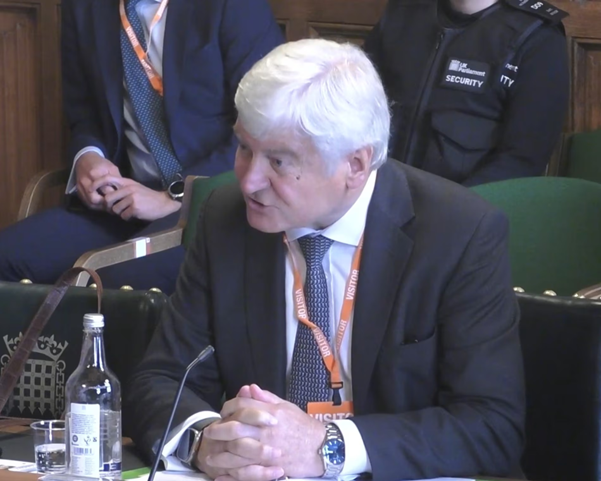Image description: Full view of Westminster, with the Thames visible in the foreground. Image by Adam Dereweck/ Pixabay.
Ministers promised to block Thames bonuses
Last week the Thames Water Executives including Sir Adrian Montague, the Chair, and Chris Weston, the Chief Executive, faced scrutiny from MPs at a select committee hearing. During this enquiry it was admitted that senior management were to receive substantial bonuses linked to an emergency £3bn emergency loan from creditors, which was granted to avert insolvency earlier this year.
Thames claimed the payouts were vital to retain staff and prevent rival companies from “picking off” its best employees and claimed the bonuses were “insisted” upon by the lenders. “We need this team to stay until the completion of the transaction,” Montague said, adding the bonuses linked to the £3bn loan “will be funded by the lenders” and not customers. However, the disclosure provoked outrage as the company simultaneously said its finances are “hair raising” and that it had come “very close to running out of money entirely” last year.
The Guardian revealed Ministers were planning on utilising new powers to block bosses from taking bonuses worth hundreds of thousands of pounds. The bonuses would have been the first to be blocked under Reed’s Water (Special Measures) Act 2025, which gives the regulator Ofwat powers to ban financial rewards for executives presiding over a failing company. Thames Water could be classed as such, as it is presiding over record sewage spills, heavily laden with debt and on the brink of financial collapse. The ban would also be retrospective, meaning bonuses paid in the last financial year could be clawed back.
However, in a statement Thames Water said it was not paying performance-related bonuses but instead “retention payments“, which were not covered by the new rules. It said none of these retention payments would be funded by customers.
Thames “withdraws” bonus plans
Image description: Adrian Montague told the environment select committee that Thames came within five weeks of running out of money entirely. Photograph: House of Commons/PA.
However, the large bonuses due to be paid to Thames Water executives from the emergency loan have instead been “withdrawn”, the environment secretary, Steve Reed, said, after the Guardian revealed the chair of the company wrongly told parliament creditors had “insisted” on the payments.
Reed said at the parliamentary committee on Tuesday that Thames Water had “appeared to be attempting to circumvent that ban, calling their bonuses something different so they can continue to pay them”. In a letter read out at the same committee session, the Thames Water chair, Adrian Montague, admitted he may have “misspoken” when he told the Efra committee last week that large bonuses to be paid to senior bosses out of an emergency £3bn loan were “insisted” upon by creditors.
In a statement that followed Reed’s comments, a Thames Water spokesperson said: “It has never been the Thames Water board’s intention to be at odds with the government’s ambition to reform the water industry. Following recent discussions, the board has decided to pause the retention scheme and await forthcoming guidance from the regulator in relation to the implementation of the relevant aspects of the special measures act, to ensure our approach supports both our turnaround objectives and broader public expectations.”
Minster prepared to take over Thames Water
In an interview with Parliament’s House Magazine, Defra’s water and flooding Minister Emma Hardy has said the government is ready to take over Thames Water and keep the taps running for 16 million customers should the company fail. She also suggested that regulators such as Ofwat could be abolished unless performance improves.
She said that while “like any sensible government” they are prepared for special administration, “at the moment, we’re not in that situation. We’re monitoring it, but in the event of it happening, to reassure people: taps will still work, sewage will still go, people will still get paid, and it will continue.”
Meanwhile, according to a briefing paper disclosed to the Financial Times, Ofwat is assuring private financiers the “right to collect” revenue from consumers, with promises of “opportunities for upside”, “capped liabilities” and supportive “investment positive” government measures, initiatives designed to assure returns and reduce competition as it seeks over £50bn in investment to revamp the UK’s water infrastructure.

